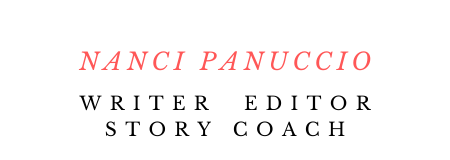Present tense? Or past tense? How do you decide?
What are the pros and cons of writing in present tense? And when is past tense a better option?
In today’s episode, I’m going to explore the pros and cons of present tense. We’ll talk about some techniques that are much easier to achieve with past tense.
And if you’re set on present tense, I’ll give you 4 limitations to be aware of so you can overcome them.
Download as an MP3 by right-clicking here and choosing “save as.”
Episode at a glance:
[1:09] Present tense in fiction and even certain memoir is not new. But it’s been making a comeback in recent years, especially with psychological thrillers like The Girl On The Train, and even literary novels like The Hours.
[2:45] For some stories, present tense is absolutely the right choice. But not all stories benefit from it. So you want to be aware of both its strengths and drawbacks before committing to it.
First, the advantages of present tense.
[3:46] Present tense has more immediacy then past tense. Of course, past tense narration is also immediate because the events narrated in the past are unfolding in the readers’ present. But in present tense, no translation is needed.
[5:08 ] Important and dramatic moments gather intensity from being written in present tense. So shifting from past to present tense can give certain moments intensity. But these shifts need both to be saved for crucial moments, and controlled so carefully in the transition, that the reader is primarily aware of the intensity rather than the tense.
[9:44] Present tense is an effective way to convey unfamiliar, disorienting states of mind. This tends to work best in a story primarily written in past tense, which then shifts to the present tense at key emotional moments.
Okay, on to the drawbacks of present tense.
[13:09] Present tense restricts your ability to manipulate time.
Present tense makes it more challenging to alter your story’s chronology, or even to vary the duration and order of events through flashback, flash forwards or summary. And this makes it harder to frame significant story moments and events.
Flashbacks, flash-forwards, and summary are are much easier to do in past tense.
[16:42] It’s harder to create depth and complexity.
Present tense mimics the immediacy and pace of a film, and so it can lead to a more impersonal and detached storytelling. The vocabulary is typically limited, there tends to be minimal description and imagery. It’s much easier to expand vocabulary and very syntax and employ imagery when you write in past tense.
[20:01] Present tense can lead writers to include trivial and mundane events that serve no plot function simply because they would happen in the normal sequence of time.
Past tense allows you to be more selective and you can be more ruthless about cutting insignificant events and details.
[22:01] Present tense can reduce dramatic tension.
A good story is filled with suspense. Sometimes that suspense comes from knowing how past or future events will affect different characters. And because present tense narrators don’t know what’s going to happen next, they can’t create that kind of suspense that builds from knowledge of upcoming events. Stories that take place solely in the present time-frame rely on events currently happening to create that tension. And that’s just harder to do.
[22:01] Parting thoughts
Don’t use present tense just because you see other writers in your genre doing it. Really consider the challenges and limitations of writing in present tense.
Look at how other writers make present tense work. How do they convey backstory and events that happened in the stories deeper past? How do they slip in exposition? How do they frame significant events? How do they withhold to create suspense? And how does this compare with stories that use past tense?
If you’re absolutely sure you want to write your story in present tense, the more you understand its advantages and limitations, the more you’ll be able to use it effectively.
Books mentioned in this episode:
The Girl On The Train by Paula Hawkins
In Country by Bobbie Ann Mason
Niagara Falls All Over Again by Elizabeth McCracken
The Hours by Michael Cunningham
Rate, Review, and Follow on Apple Podcasts.
“I love Writer Unleashed!” If that sounds like you, please consider rating and reviewing my show. This helps me support more writers — just like you —to bring the story burning in their imagination onto the page. Click here, scroll to the bottom, tap to rate with five stars, and select “Write a Review.” Then be sure to let me know what you loved most about the episode!
Also, if you haven’t done so already, follow the podcast. It’s chock full of writing tips and inspiration every Tuesday. Follow now!

